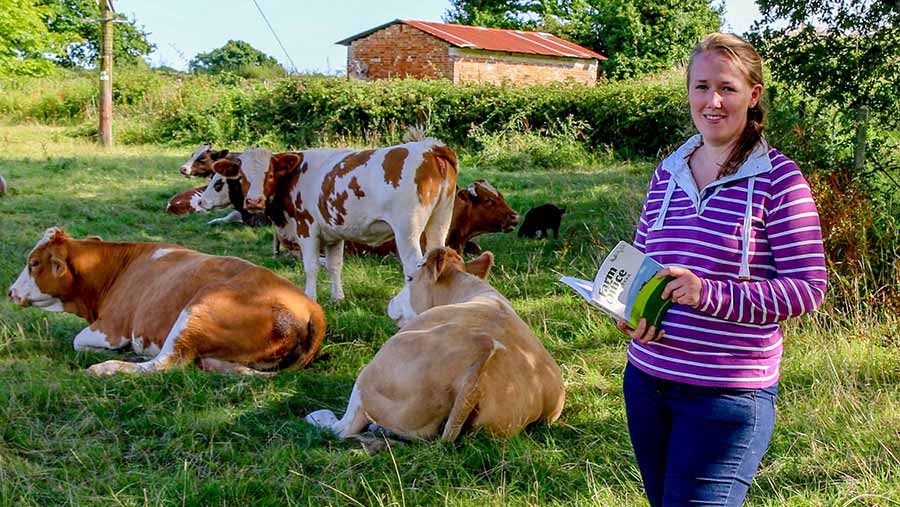Job profile: What’s it like to be a farm administrator?
 Robyn Munt
Robyn Munt If you’re analytical, organised and have a head for numbers then the role of farm administrator or farm secretary is one to consider.
It is a varied position that involves working with farmers to ensure they are on top of their business administration, as well as meeting legislative requirements.
Farmers Weekly asked farm administrator Robyn Munt to explain what the job is like.
Name Robyn Munt
Age 30
Job title Farm administrator
Company Self-employed
Sum up your job in a sentence or two
I provide administrative support to farm businesses, including work with a local land agency firm to provide a Basic Payment and grant scheme service.
See also: Job profile: What’s it like to be an agronomist?
What does this involve day to day?
Every day is different, but regular tasks can be bookkeeping, payroll and general administration, which can include livestock and crop records or environmental scheme management.
Depending on the time of year, I can also be responsible for BPS and stewardship claims, whole-farm mapping reviews, grant applications or forecasting and budgeting.
What do you most enjoy about your job?
The variety of every day, as farm businesses are so diverse.
I also like the flexibility – with a home office and remote access/cloud software I can choose how, when and where I work.
What can be the downside?
Farmers don’t work 9-5, so invariably neither do I, but generally I see this as an advantage.
What percentage of your job is office-based?
On average 80%, but it varies and that is a different office every day.
What skills and qualifications are essential to do the job?
Being organised is crucial – there is a lot of paperwork involved and it’s helpful if others can follow your system in your absence – so keep things simple.
Completing Association of Accounting Technicians (AAT) qualifications gave me a broad understanding of accounting.
However, the Institute of Agricultural Secretaries and Administrators (IAgSA) Lantra-certified units were invaluable to get to grips with quirks you only find in farm administration.
What experience did you have before starting?
Coming from a farming family, I had absorbed a lot of knowledge without giving it much thought.
And having studied law at university I’ve never felt daunted by the documents and bureaucracy I deal with.
Time with an events business also taught me a lot about the organisation of an office and the importance of having systems in place.
What other careers did you consider?
I thought about commercial law, having enjoyed those topics at university, but I couldn’t imagine myself in a city office.
What tips/advice would you give to someone wanting a similar role?
Become a member of the IAgSA – as well as training courses, membership offers a mentoring scheme, monthly bulletin and job ads.
Attending branch meetings and events helps to keep you up to date with training and they are also a chance to discuss ideas and issues with other members – which is helpful as you will generally be working alone.
They can also provide a template for a service contract to put in place with clients.
Most importantly, if you are self-employed, ensure you have sufficient professional indemnity insurance and the appropriate anti-money-laundering licence.
Give us an idea of salaries in the sector
The IAgSA suggest that fully qualified administrators can charge fees of £15-£25/hour depending on the region and work covered.
What’s the best bit of career advice you’ve been given?
Don’t be afraid to say no, especially when you’re starting out.
It’s easy to worry about finding enough work and you find yourself saying yes to everyone.
Don’t be afraid to give it some thought and evaluate whether it’s the right position for you.
But don’t be afraid to push yourself – just because it’s not something you’ve done before doesn’t mean you can’t. Ask or take any training offered and add to your repertoire.
